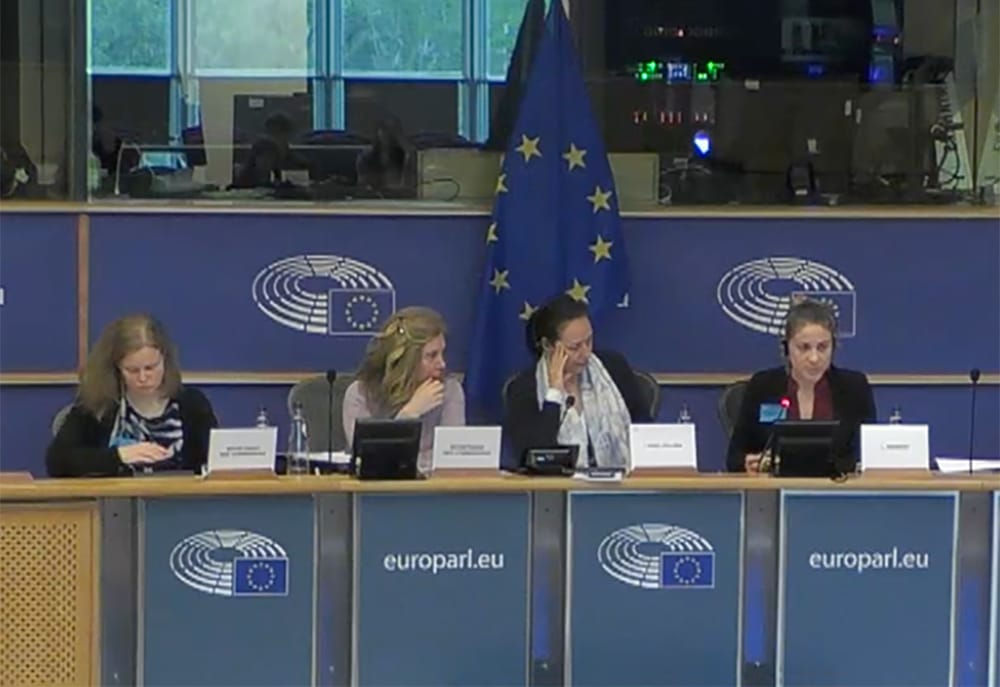António Guterres was addressing an emergency session of the UN Security Council in New York, and again demanded an end to the fighting between troops loyal to Sudanese Armed Forces (SAF) leader Fatttah al-Burhan, and his deputy on the so-called Transitional Sovereign Council, Rapid Support Forces (RSF) leader, Mohamed Hamdan Daglo “Hemedti”.
“It is incumbent on Sudanese leaders to put the interests of their people front and centre”, said the UN chief, who began his speech by paying tribute to all the Sudanese men, women and children, who have lost their lives or been injured since the faction fighting began.
No battlefield solution
Mr. Guterres said a prolonged full-scale war was “unbearable to contemplate” warning that seven countries border Sudan, all of which had seen conflict or serious civil unrest in the past decade.
Poverty and hunger are already rampant across the whole region, he added.
“This conflict will not, and must not, be resolved on the battlefield, with the bodies of Sudan’s children, women and men.”
Following the popular overthrow of long-term dictator Omar al-Bashir four years ago, the generals carried out a joint military coup in 2021, ending the brief and fragile civilian power-sharing agreement that it was hoped would take Sudan into a new era of peace and civilian rule.
As negotiations advanced following positive steps towards elections and a democratic future, the two military factions failed to agree on how to integrate the SAF and RSF forces, sparking this months in-fighting.
Mr. Guterres said the Sudanese people, “have made their wishes very clear. They want peace and the restoration of civilian rule through the transition to democracy”, he told ambassadors in New York.
He urged all with influence and interests in restoring peace, to press the generals to return to the negotiating table immediately..
Committed to stay in Sudan
Turning to the UN operations, he repeated that despite relocating staff to protect personnel and their families, the Organization is committed to “staying and delivery support to the Sudanese people.”
He said Special Representative Volker Perthes would be staying in the country, along with other senior leaders: “We are establishing a hub in Port Sudan to enable us to continue to work with our partners in support of peace, and to alleviate human suffering”.
“Above all, we stand with the Sudanese people”, Mr. Guterres concluded.
‘Humanitarian catastrophe’ leaves civilians bearing the brunt
Addressing the Council via videolink from Sudan, Mr. Perthes said a United States-brokered 72 hour ceasefire that began on Monday, had held “in some parts” but the rival militias had continued accusing each other of violating the truce, while in Khartoum fighting had largely continued “and in some cases, intensified.”
“Residential areas near SAF and RSF installations have come under persistent attack”, he said, with many civilian areas damaged, including schools, shops, utilities, mosques, hospitals and other health facilities – some now “fully destroyed.”
Home invasions, looting of shops and cars at checkpoints, has been “rampant”, including homes and cars of local citizens, UN staff, humanitarian workers and diplomats.
Criminality on the rise
“We have also received disturbing reports of attempted sexual assaults. With supply lines running out and destroyed in airstrikes, fear of increased criminality is mounting”, he said, with reports of prisoners being released onto the streets.
He detailed the volatile situation in Darfur, and mixed responses to attempted ceasefires, with thousands on the move to escape fighting, amid spiralling prices and reports of armed robbery.
“The fighting in Sudan has created a humanitarian catastrophe, with civilians bearing the brunt”, he told the Council.
At least 450 have been killed, and over 3,700 injured Mr. Perthes said, almost certainly conservative estimates which are climbing upwards.
In a glimmer of hope, civil society and grassroots networks have mobilized to fill a vacuum left by the forced humanitarian retreat, he said.
He said that UN brokered ceasefire efforts of recent days had not been entirely fruitless, and in the few hours of time negotiated during brief humanitarian pauses, “some brief respite” had been gained, and UN staff were able to relocate on the lengthy journey to Port Sudan.
He warned that reports of some tribes and armed movements mobilizing in Darfur, taking sides in the power struggle, were “dangerous and could draw in Sudan’s neighbouring countries. I renew my call on all communities to maintain their neutrality and refrain from taking sides.”
General ‘miscalculation’
Mr. Perthes said the two generals responsible for the violence were continuing to trade accusations and issuing competing claims over territory won, and “there is no unequivocal sign that either is ready to seriously negotiate, suggesting that both think that security a military victory over the other, is possible.
“This is a miscalculation. As fighting continues, law and order will further break down”, said Mr. Perthes, who also heads UN mission UNITAMS, “and command and control dissipate. Sudan could become increasingly fragmented, which would have a devastating impact on the region.”
He said the UN was continuing to ensure that national staff in Sudan, “can relocate as needed to safe areas.”
A residential building in Khartoum is damaged after being hit by a missile.
Three key priorities
Like the Secretary-General, he stressed that “our relocation and evacuation do not mean that the UN is abandoning Sudan”, and there were now three immediate priorities for the UN and partners.
First, a sustained ceasefire with a monitoring mechanism in place. Secondly, a return to political negotiations, and finally, “the alleviation of human suffering.”
“The courage and resilience of our Sudanese friends, national staff and partners, continue to motivate us”, concluded the Special Representative. “The entire UN family will work tirelessly towards ending the violence in Sudan and restoring hope for a better future.”
Aid teams exploring ways of replenishing stockpiles
Briefing the Council on the humanitarian effort, the UN Deputy Emergency Relief Coordinator, Joyce Msuya, said events since 15 April had been “a nightmare for ordinary citizens and aid workers alike.”
Needs were already at a record high, with 15.8 million relying on some form of humanitarian aid, and 3.7 million already internally displaced. She said an “entirely new wave of humanitarian challenges” was now likely.
She praised the people of Sudan and all humanitarians “for their heroic efforts and for putting their lives at risk to help others.”
“We have lost five of our own”, she said, with aid workers attacked in the homes, beaten and held at gunpoint.
“The situation is extremely dangerous and alarming”, added the deputy relief chief, but the UN’s commitment to the people, would “remain absolute”, she assured.
Thousands of refugees are crossing the border into Chad fleeing violence in Sudan.
Operations continue ‘where possible’
“Where possible, humanitarian operations continue, thanks to the dedication of aid workers, including our local partners. Together, we continue to deliver whenever and wherever feasible, particularly in the areas of health and nutrition”.
She said the UN was now exploring ways to replenish its depleted stockpiles so that aid could be delivered in Port Sudan and elsewhere, “as soon as it is safe to do so.”
A hub in neighbouring Kenya, is being activated, to support the rapid response mission that will be needed, she added.
“What the people of Sudan need, what we need to reach them, is an immediate ceasefire and a lasting solution to the crisis. We are counting on your relentless efforts to this end”, she told ambassadors.














